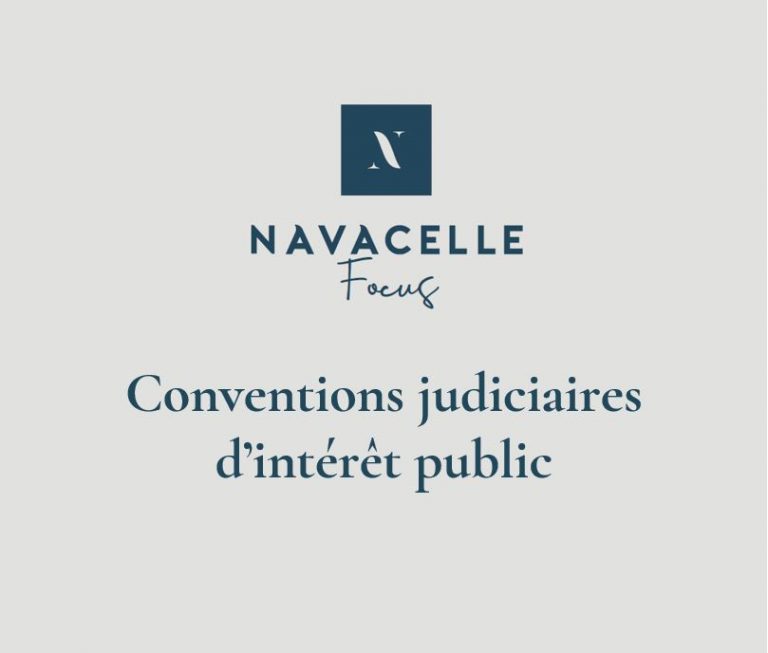France allows the introduction of national asset freezes. The free movement of capital is however one of the four fundamental freedoms of the EU single market [1], and restrictions on capital movements between Member States as well as between Member States and third countries could only be allowed in exceptional circumstances [2].
On November 8, 2019, the European Commission issued an Opinion [3], stating that unilateral adoption of national asset freeze measures was incompatible with EU law.
The EU Commission’s position may thus have consequences for those Member States which, as France, have provisions in their national law, allowing the introduction of national asset freezes. Indeed, the Commission could bring legal action before the Court of Justice of the European Union (“CJEU”) against a Member State who it considers failing to comply with EU law [4]. Until then however, an Opinion of the Commission has no binding force [5], which can raise question on its effectiveness.
I. European Commission considers incompatible with EU law unilateral adoption by a Member State of national asset freeze measures
The Opinion issued by the European Commission states that unilateral adoption of national asset freeze measures, introduced by the Member States to support the achievement of the EU Common Foreign and Security Policy (“CFSP”) objectives, would have a clear impact on the functioning of the internal market and would undermine the purpose and effectiveness of Article 215 TFEU [6]. Such measures would therefore not be compatible with EU law.
Measures such as assets freezes of EU or third countries nationals might affect movement of capital, including exports, imports, transfers of funds, investment, as well as access to the EU’s capital markets. Heterogeneous measures taken unilaterally by the Member States may also affect, without any economic justification, the competitive position of certain economic operators, creating competition distortion. Finally, they might also affect the exercise by economic operators of their right of establishment and to provide services.
The Commission based its position on the CJEU decision Kadi I [7] of September 3, 2008, in which CJEU confirmed that Article 215 TFEU is the sole appropriate legal basis for the implementation of sanctions such as assets freezes adopted under the CFSP that can be used without a risk of potential distortions of the internal market. It also considered that unilateral restrictive measures adopted by the Member States would undermine the effectiveness and the purpose of this provision. The Court added that the sanctions are implemented through the adoption of Council Regulations and become immediately applicable in the Member States. Hence, their implementation is harmonised all over the EU territory.
The Commission finally emphasised that unilateral national restrictions to the free movement of capital within the EU that are allowed under Article 65 TFEU [8] (such as capital controls that Cyprus and Greece were forced to introduce in 2013 and 2015 respectively in order to prevent an excessive outflow of capital during the European sovereign debt crisis [9] ), cannot be considered as a legal basis for restrictions such as assets freeze that are adopted pursuant to Article 215 TFEU.
II. French law allows adoption of national asset freeze measures in contradiction with the Opinion
The asset freeze measures that apply in France [10] derive from the EU Regulations on restrictive measures [11] adopted under the CFSP and also from the national provisions listed in the French Monetary and Financial Code (CMF) [12] . Indeed, Article L. 562-2 of the CMF provides for the possibility to implement asset freezes measures against persons that commit, attempt to commit, facilitate, finance, incite or participate in acts of terrorism. It meets the requirements set out by the Financial Action Task Force and the United Nations Security Council (UNSC). Such measures can be introduced by decree issued conjointly by the Minister of the Economy and Finance and the Minister of the Interior and apply to financial institutions following a publication of the decree in the Official Journal of the French Republic. Their validity is limited to 6 months, renewable by a new decree [13] .
Article L. 562-3 of the CMF also allows to adopt national asset freezes against persons that have attempted to commit, facilitate or finance actions sanctioned or prohibited by resolutions adopted under Chapter VII of the Charter of the United Nations [14] or acts adopted pursuant to Article 29 of the TEU [15] or Article 75 of the TFEU [16] . It is to be noted that, as regards UNSC resolutions, they do not create obligations for the countries until they have been transposed into national law. Asset freeze measures under Article L. 562-3 are implemented following a decree issued by the Minister of the Economy and Finance and are automatically repealed when the EU Regulation establishing the asset freeze measures enters into force.
Consequently, while under Article L. 562-3 of the CMF a ministerial decree introducing asset freezes is usually issued following a UNSC resolution (that is or will be transposed into EU law) or an EU Council decision, under Article L. 562-2, asset freezes can be introduced independently from any international decision. This mechanism allows therefore unilateral national measures, which might not be included in the EU legislation, and which have been condemned by the Commission in the November 8, 2019 Opinion.
That being said, unless an intervention of a legally binding act or a decision by the CJEU confirms the Opinion, the French national asset freeze mechanisms should continue to be considered compliant with the EU law until otherwise decided.














